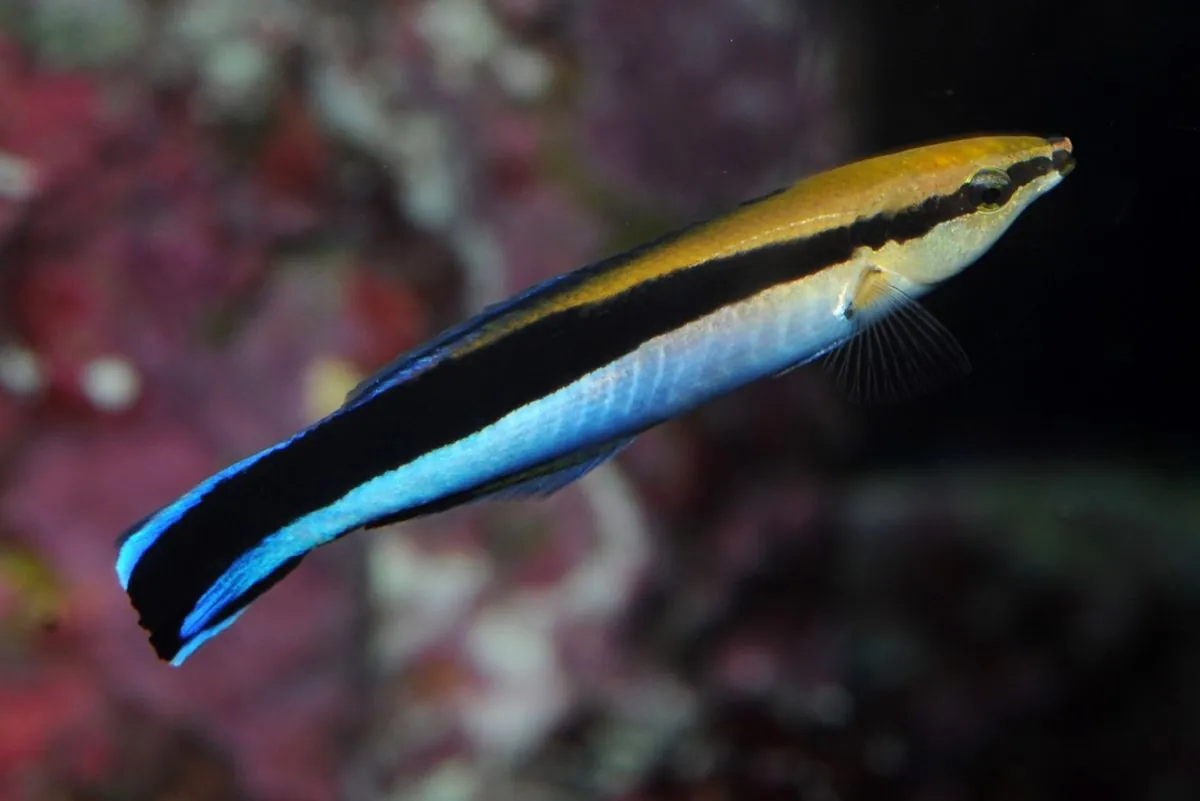Tiny Fish Shows Self-Awareness in Mirror Test, Study Reveals
Scientists discover bluestreak cleaner wrasse can recognize its reflection and assess body size before engaging other fish. This finding provides insights into the evolution of self-awareness in animals.

Recent research has unveiled intriguing cognitive abilities in a diminutive marine species. Scientists have found that the bluestreak cleaner wrasse (Labroides dimidiatus), a fish no larger than a human finger, demonstrates self-awareness by recognizing its reflection and potentially possessing an internal sense of its body.
A team from Osaka Metropolitan University in Japan conducted laboratory experiments revealing that these tiny fish use mirrors to assess their body size before deciding whether to engage in aggressive behavior towards other fish. This discovery offers valuable insights into the evolution of self-awareness across species.
Taiga Kobayashi, a researcher involved in the study, stated, "The results that fish can use the mirror as a tool can help clarify the similarities between human and non-human animal self-awareness."
The study, published in Scientific Reports, employed a modified version of the mirror self-recognition (MSR) test, a classic method for evaluating self-awareness in animals. While the traditional MSR test involves marking animals and observing their reactions to their reflections, this research focused on the fish's ability to construct a mental image of its body and make decisions based on this representation.

The experiment involved 15 cleaner wrasse, with seven exposed to mirrors in their aquariums. These fish were then presented with photographs of other fish that were slightly larger, smaller, or the same size. Interestingly, the mirror-exposed wrasses displayed less aggression towards larger and same-sized fish but were more hostile towards smaller ones.
Some of the cleaner wrasse were observed swimming parallel to the mirror repeatedly when presented with photos of larger fish. The researchers suggest this behavior indicates the fish may have been assessing their body size to determine whether to exhibit aggressive behavior towards the intimidating larger photograph.
These findings imply that cleaner wrasse may possess metacognition - the ability to reflect on one's thought processes for planning and decision-making. However, the researchers emphasize that further studies are necessary to confirm this hypothesis.
The bluestreak cleaner wrasse, native to Indo-Pacific coral reefs, plays a crucial role in maintaining reef ecosystem health. These fish can service up to 2,000 client fish daily, removing parasites and dead skin. Their distinctive blue and black striped pattern makes them easily recognizable on the reef.
Interestingly, cleaner wrasses are protogynous hermaphrodites, beginning life as females with the potential to change to males. They can live up to four years in the wild and have been observed working in pairs, often as male-female teams.
This study not only sheds light on the cognitive abilities of these small fish but also contributes to our understanding of self-awareness in the animal kingdom. As research continues, it may reveal more about the evolutionary pathways of cognition and consciousness across diverse species.
"These findings suggest that these fish may have assessed their body size to decide whether to exhibit aggressive behavior toward the intimidating larger photograph."


































